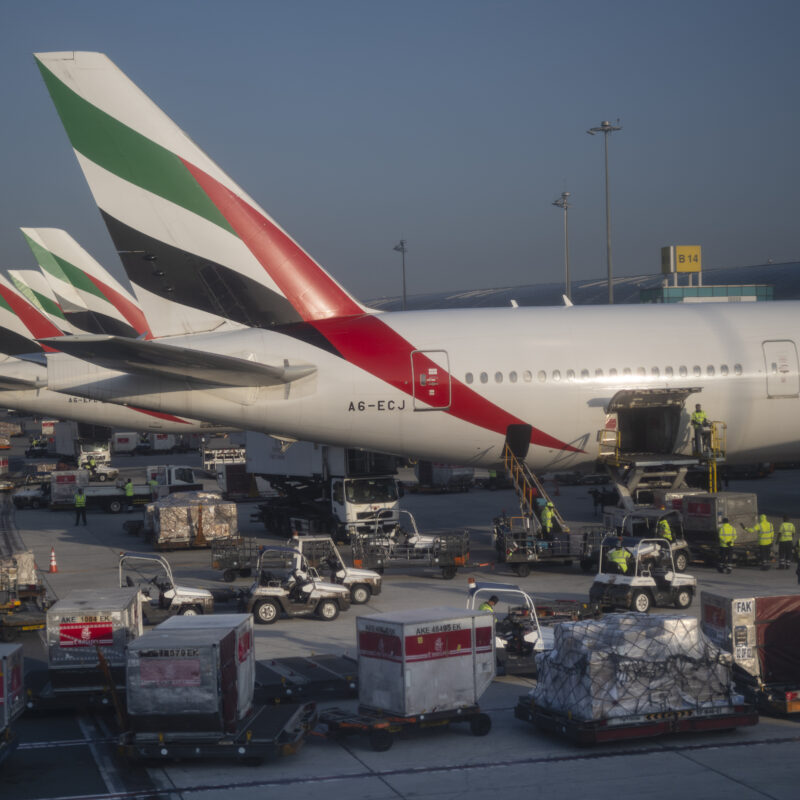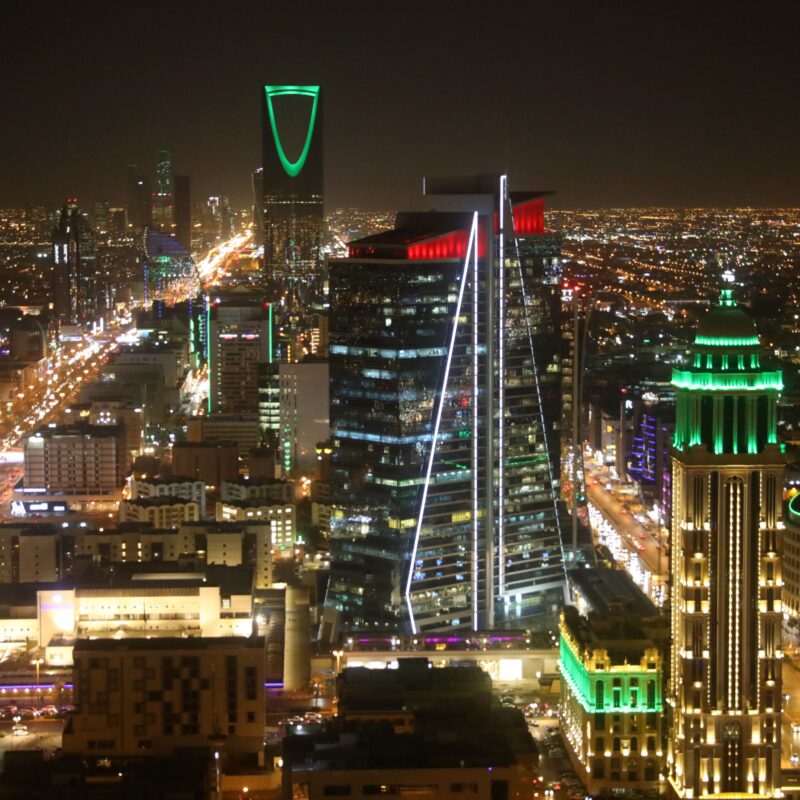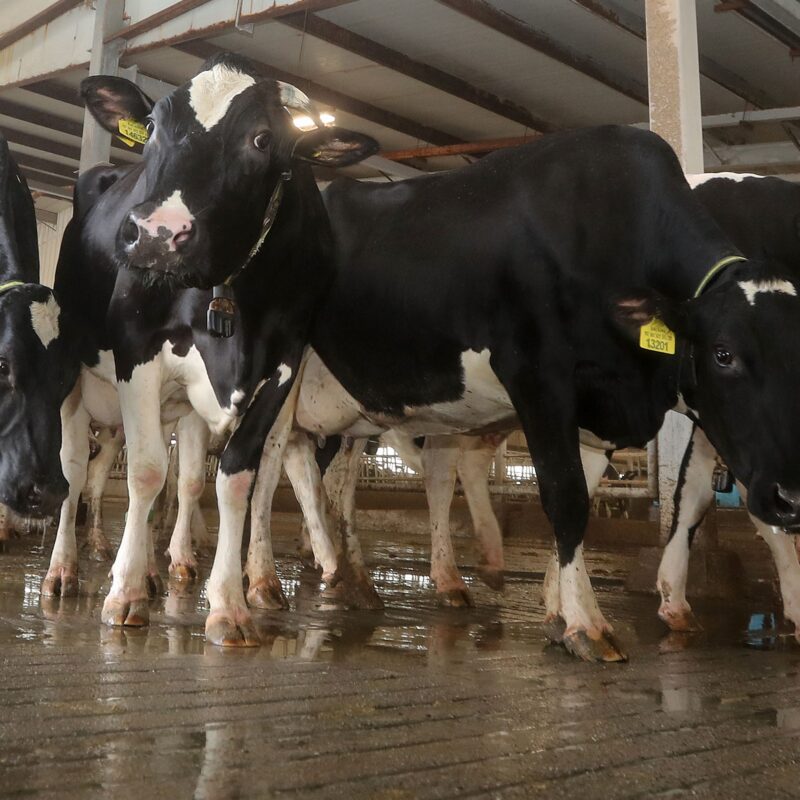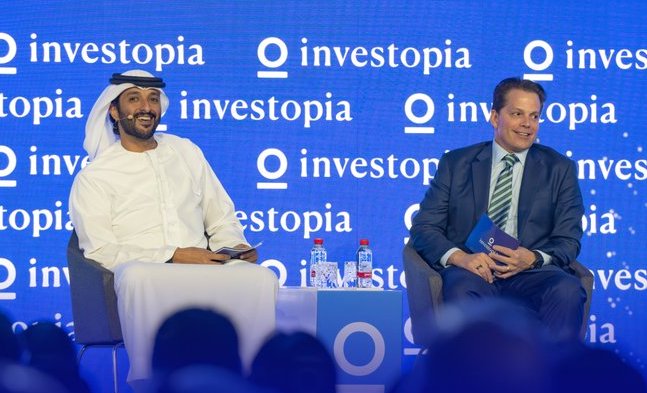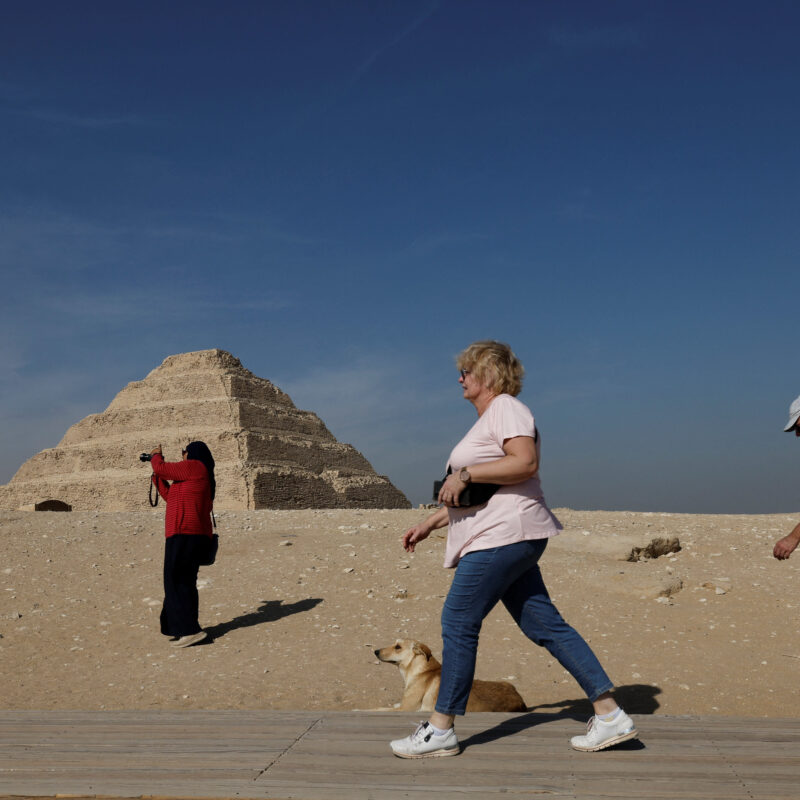The Weekly Circuit
👋 Good Monday morning in the Middle East!
To round out our first year of publication, The Circuit interviewed the UAE’s minister of state for foreign trade, Thani Al Zeyoudi. Addressing the offer made by Abu Dhabi’s ADQ to buy control of the Phoenix Group, Israel’s largest insurer, Al Zeyoudi said the deal is a sign of the UAE’s interest in the country’s financial services industry. Al Zeyoudi, who signed a free-trade agreement with Israel in May, told The Circuit he expects annual economic activity between the two countries to reach $10 billion by 2026, two years earlier than previously forecast.
Coming up in 2023, the UAE will shake up its calendar to align with global businesses. Government offices, banks and many businesses will start operating on a 4 ½-day week, closing Friday afternoons and making Sunday part of an extended weekend. Until now, the workweek has run Sunday to Thursday. In another step for the new year, Saudi Arabia has instructed its banks to make it easier for foreign companies to operate in the kingdom. The move is in preparation for 2024, when the government plans to sign contracts only with companies that maintain their regional headquarters in Saudi Arabia. More below in Circuit Chatter.
Benjamin Netanyahu, Israel’s incoming prime minister, told the Jewish Insider podcast that it will take time to establish diplomatic relations with Saudi Arabia. “I want to go as big as we can, but sometimes to take a long journey it takes smaller steps, and that’s not a problem,” Netanyahu said. “Now I hope to bring about a full, formal peace as we’ve done with the other Gulf states like Bahrain and the United Arab Emirates. It’s up to the Saudi leadership to decide that. I hope they will. And I intend to explore that alongside my other main goals. This is a very important goal, because if we have peace with Saudi Arabia, we are effectively going to bring an end to the Arab-Israeli conflict.”
In the hope that the new year will be a sweet one, The Circuit features a story about an Israeli startup’s effort to use robotic hives to help stop a global die-off of honeybees. The technology developed by Beewise employs cameras, sensors and artificial intelligence to make sure the bees’ environment protects them against threats from climate change, pesticides and parasites.
Welcome to The Weekly Circuit, where we cover the Middle East through a business and cultural lens. Read on for the stories, deals and players at the top of the news. Please send comments and story tips to [email protected].
Ed. note: The Weekly Circuit will not appear on Jan. 2. We’ll be back in your inbox on Monday, Jan. 9. Happy New Year from the team at The Circuit!
Spread the word! Invite your friends to sign up.👇
FREE TRADER
UAE offer for Israeli insurer paves way for more deals, minister says
While regulators scrutinize a bid from the United Arab Emirates for Israel’s largest insurance company, the Gulf state will be looking to buy more pieces of the Israeli financial services industry, Minister of State for Foreign Trade Thani Al Zeyoudi told The Circuit’s Jonathan Ferziger. Al Zeyoudi said the offer last week from a consortium led by Abu Dhabi-based ADQ for a controlling stake in Israel’s Phoenix Group was “just another signal that relations are going to grow.” Israeli insurers, financial services companies and fintech startups are among the most attractive candidates for partnerships and acquisitions, he said.
Setting goals: In a video interview from his office in Abu Dhabi, the UAE’s capital, Al Zeyoudi also said he expects ties between the two countries to strengthen under returning Israeli Prime Minister Benjamin Netanyahu. Al Zeyoudi said the free-trade agreement that the UAE and Israel ratified on Dec. 11 would likely reach its goal of generating an annual $10 billion in bilateral economic activity by 2026, two years ahead of the ministry’s earlier projections. Two years after the UAE, Bahrain, Morocco and Sudan signed agreements to normalize relations with Israel, he said more Arab countries are getting ready to engage with the Jewish state. “There is a growing appetite across the region for collaboration and cooperation,” Al Zeyoudi added.
Let’s make a deal: In the insurance deal, Al Zeyoudi said ADQ, a holding company owned by the Abu Dhabi emirate, is prepared to confront concerns expressed in Israel about foreign control of Phoenix, the largest manager of employee pension funds. The investment group it leads signed a term sheet last week with Phoenix’s controlling shareholders, U.S. investment firms Centerbridge Partners and Gallatin Point Capital, to buy between 25-30% of the company’s shares for as much as $800 million. “It’s all been studied very well and thoroughly from both sides,” he said. “No deals will be signed without the full picture [being] put on the table, being discussed, being tackled, and then we move on to the next level.”
Fast friends: In his own efforts to understand the Israeli financial services market, Al Zeyoudi said he developed a warm relationship with Samer Haj-Yehia, chairman of Bank Leumi, Israel’s largest lender. Haj-Yehia, an Arab citizen of Israel, was a surprise speaker in October at the Future Investment Initiative conference in Saudi Arabia, even though the two countries do not have diplomatic relations. Al Zeyoudi first met the banker during a meeting with Israeli business leaders in Dubai on Sept. 15, 2020, the day the Abraham Accords were signed in Washington. “Since then, the relationship is very close with him,” Al Zeyoudi said. Haj-Yehia, who also spoke at conferences in the UAE last month, acknowledged through a Leumi spokesman that he has met with the Emirati minister and declined to comment further.
FIGHT FOR SURVIVAL
Robotic hives keep bees working hard for the honey
Beekeepers around the world are engaged in a desperate battle for survival. Devastated by rising temperatures, pesticides and mite infestations, honeybee colonies are collapsing in record numbers. More than 35% of the world’s bees die each year due to “colony collapse disorder,” in which entire hives perish at once. An Israeli startup aims to help commercial beekeepers deal with the phenomenon through the use of robotic hives that employ artificial intelligence to maintain optimal conditions, in hopes of helping bees survive the modern world, Melanie Lidman reports for The Circuit.
Round the clock: “If every hive would have its own beekeeper 24/7, you wouldn’t see colony collapse at all,” Saar Safra, the CEO and co-founder of Beewise, told The Circuit. “This is what the robot does.” The beehive disorder derives from several interconnected issues: global warming, lack of biodiversity, pesticides, pests and diseases that developed in the past 50 years against which bees have no natural defenses. Beewise has developed a self-contained colony of hives, powered by solar panels and connected with Bluetooth, that enables a small robotic arm, equipped with cameras and precision sensors, to monitor a group of hives for common problems. The “BeeHome” can also harvest the honey automatically and collect it in a dedicated container.
Not a chance: “Imagine a bee leaves the hive and goes foraging. Then she’s poisoned by pesticides. Then it gets really warm, so she’s boiling. And then she gets back home, and there’s not enough food because there’s a lack of biodiversity. She doesn’t have a chance,” Safra said. Since its founding in 2018, Beewise has raised about $120 million from venture capital firms including New York-based Insight Partners, Corner Ventures, based in Palo Alto, Calif., and Tel Aviv’s Fortissimo Capital and Lool Ventures. One of the investors is Sanad AD, a VC based in Abu Dhabi, capital of the United Arab Emirates, where the climate is especially challenging. Sanad AD, which launched in 2015, has investments in health care, real estate, automobiles, emerging technologies and security.
Scorched in Gulf: Bees can’t survive in the UAE during the summer. Many Gulf states practice seasonal beekeeping, purchasing bees in the fall for their winter crops and then letting them die in the summer. In the BeeHome, the bees can “oversummer” inside the hive, receiving sugar water rather than going out and foraging, with the thermostat keeping the hive at a survivable temperature, so they can reemerge once the weather cools. Bees in colder climates in Europe and North America are used to “overwintering,” when they stay inside their hives and maintain the temperature at 35 C (95 F) by beating their wings.
Read the full story here.
EXPANDING TIES
Netanyahu says Saudi peace agreement would bring end to Arab-Israeli conflict
Last week, Israeli Prime Minister-designate Benjamin Netanyahu announced he had formed a government, cementing his return to power a year and a half after his ouster by a coalition led by Naftali Bennett. In his first English-language interview since officially forming his government, Netanyahu joined co-hosts Rich Goldberg and Jarrod Bernstein for a special episode of Jewish Insider’s podcast. During the conversation, Netanyahu discussed Saudi Arabia, Iran, economic reforms and higher education for ultra-Orthodox Jews and Arab citizens.
Below are excerpts from the conversation:
On Saudi Arabia: “Now I hope to bring about a full, formal peace as we’ve done with the other Gulf states like Bahrain and the United Arab Emirates. It’s up to the Saudi leadership to decide that. I hope they will. And I intend to explore that alongside my other main goals. This is a very important goal, because if we have peace with Saudi Arabia, we are effectively going to bring an end to the Arab-Israeli conflict.”
On Iran: “I have come back to office, to the genteel world of Israeli politics, I’ve come back for one reason, one main reason, and that is to do everything that I can, as I’ve done over the past 15 years of my premiership, to prevent Iran from having nuclear weapons that will endanger my country Israel, will endanger your country the United States, and just about everything in between.” View a portion of this exchange.
On economic reforms: “Deregulation, deregulation, and deregulation. You know, once you bring down taxes, which we have, and once you reduce the government budget, which we have relative to the GDP, once you get control of… all these things, you can still stifle business…. I’m going to deregulate as best I can.”
On integrating ultra-Orthodox Jews and Arabs into the tech economy: “We have to go to the next step, and that is to offer the ultra-Orthodox community, the Arab community and so on, the benefits of free education that can be done by anyone at their home or the community center, and so on…It’s an easy concept, [but] we have to make sure that we actually provide it.”
Read more of the interview here:
Circuit Chatter
Time Off: The UAE’s adoption of a 4 1/2-day workweek goes into effect in January, with offices closed Friday afternoons, Saturdays and Sunday.
New Accounts: Saudi banks will expedite opening accounts for foreign companies before rules take effect in 2024 pressing them to open regional hubs in the kingdom.
Spyware Sanction: Israel’s Cognyte was dropped by Norway’s sovereign wealth fund for selling surveillance products to countries with known human rights violations.
Hash Tagged: Morocco, the world’s biggest exporter of hashish, has legalized the drug and is trying to adapt its marketing and shipping to legitimate commercial channels.
Family ties: The Al Nahyan family of UAE President Sheikh Mohammed bin Zayed was ranked the world’s wealthiest family by Bloomberg with a fortune of at least $300 billion.
Closing Circuit
Gas Option: Investor Aaron Frenkel exercised his option to buy 11% of Israel’s offshore Tamar natural gas field from Abu Dhabi’s Mubadala Petroleum for $522 million.
Startup Fund: Israel’s 10D venture capital firm raised $245 million for two investment funds that will be used to provide cash for early-stage technology startups.
House Call: Saudi-based grocery delivery startup Jumlaty said it will merge with Egyptian delivery service Appetito to form a joint company called NOMU.
Fraud Fighter: Dubai-based Now Money will use monitoring technology developed by Israel’s Thetaray to prevent money laundering through its mobile banking platform.
Zen Acquisition: Israel’s Moon Active will pay as much as $150 million to acquire the mobile game Zen Match and its team of developers from Turkey’s Good Job Games.
Chinese Funds: Israel’s Biomica signed a $20 million financing deal with Shanghai Healthcare Capital to develop therapeutic products, subject to regulatory approval.
On the Circuit
Nir Zuk, founder of Palo Alto Networks, leads a group that received a conditional license for a digital bank in Israel named Esh that is tailored to business customers.
Adwaa Al-Arifi, a pioneer in Saudi women’s sports, was appointed assistant minister of state for sports affairs.
Beny Steinmetz, a billionaire Israeli diamond dealer, settled a tax case in Tel Aviv for NIS 17 million ($4.9 million). He is appealing his conviction and five-year jail sentence in Switzerland on charges of paying millions in bribes to obtain mining permits in Guinea.
Ahead on the Circuit
Jan. 14-19, Abu Dhabi, UAE: Abu Dhabi Sustainability Week. Conference brings together government, corporate, academic figures in preparation for COP28 summit next year in the UAE. Abu Dhabi National Exhibition Centre.
Jan. 16-19, Dubai, UAE: iFX Expo Dubai 2023. Largest financial B2B conference, connecting top executives to large international firms. Dubai World Trade Centre.
Jan. 28-30, Tel Aviv, Israel: Abraham Accords Esports Peace Games. Teams from countries across the MENA region will compete in a digital video-gaming tournament for $82,000 in prize money. Shlomo Group Arena.
Jan. 30-Feb. 1, Tel Aviv, Israel: CyberTech Global Tel Aviv. Conference brings leading executives from computer security companies, senior government officials, investors from over 80 countries across the globe. Expo Tel Aviv.
Culture Circuit
Camel Trek: Thirty-four camel riders from 15 countries started the annual UAE Camel Trek, taking a 600-kilometer route that began in the Arada community in Abu Dhabi and ends Dec. 30 in Global Village Dubai.
Gulf Penguins: The Snow Oman winter park opened at the Mall of Oman in the capital city of Muscat, featuring a skating rink, penguin area, rides and other attractions.
Kid Diplomacy: A group of 20 Israeli teenagers traveled to Bahrain to meet young people in the Gulf island state and learn tech skills together. The trip was part of the Jerusalem-based Pico Kids program sponsored by Pico Venture Partners founder Elie Wurtman.


